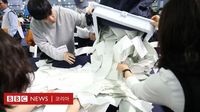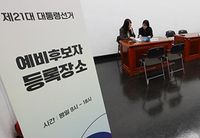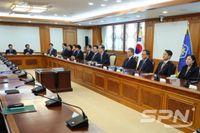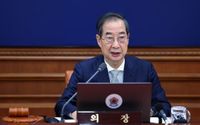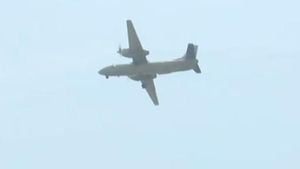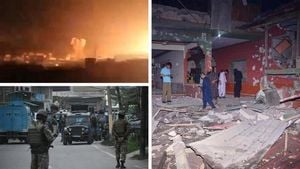On April 8, 2025, the South Korean government confirmed the date for the 21st presidential election, setting it for Tuesday, June 3, 2025. This decision was made during a Cabinet meeting presided over by Acting Prime Minister Han Deok-soo. The election day will be designated as a temporary public holiday to facilitate voter participation.
The decision aligns with the constitutional requirement that mandates a presidential election must be held within 60 days following the Constitutional Court's confirmation of a president's impeachment. Former President Yoon Seok-yeol was impeached on April 4, 2025, which initiated the timeline for the upcoming election.
During the Cabinet meeting, Han emphasized the importance of fair and transparent elections, stating, "Elections are the cornerstone of a democratic society and the most important system for reflecting the will of the people." He called on related ministries, including the Ministry of the Interior and Safety, to collaborate closely with the Election Management Committee to ensure the integrity of the electoral process.
In preparation for the election, the Ministry of the Interior and Safety plans to establish a 'Fair Election Support Situation Room' to maintain an emergency duty system until the election day. This initiative aims to bolster the management of the election and uphold public trust.
The timeline for the election process is now firmly established. Preliminary candidate registration began on April 4, 2025, shortly after the confirmation of the reason for the by-election. Each political party is expected to form an election management committee and select candidates by mid-April. Formal candidate registration is scheduled for May 10 and 11, 2025, with the official election campaign commencing on May 12, 2025.
Overseas voting is set for May 20 to 25, 2025, while early voting will occur on May 29 and 30, 2025. Notably, the winning candidate will assume office immediately upon election without a presidential transition committee, given the nature of this early election.
As the election draws near, several political figures have already begun to declare their candidacies. Kim Moon-soo, the Minister of Employment and Labor, announced his resignation on April 8, 2025, and declared his intention to run for president. He noted that public interest in his candidacy has surged, particularly following the recent political upheaval.
Ahn Cheol-soo, a member of the People Power Party, also officially declared his candidacy on April 8, 2025, in front of the Admiral Yi Sun-shin statue at Gwanghwamun Square in Seoul. This marks his fourth attempt at the presidency since the 18th presidential election in 2012. Ahn expressed the need for a "change of era," emphasizing economic recovery and addressing past mistakes.
In addition to these candidates, former Saenuri Party representative Lee Jung-hyun and Incheon Mayor Yoo Jeong-bok have indicated their intentions to run. Daegu Mayor Hong Joon-pyo is expected to announce his candidacy on April 14, 2025, after resigning from his position, while Gyeongbuk Governor Lee Cheol-woo will hold a press conference on April 9, 2025, to announce his candidacy.
On the Democratic Party side, Kim Doo-kwan, a former lawmaker, officially declared his candidacy on April 7, 2025, under the slogan "A President for Reform." He aims to unify the progressive camp and challenge the leading candidate, Lee Jae-myung, who is anticipated to resign from his party leadership on April 9, 2025, to focus on his presidential bid.
Lee Jae-myung has consistently led in opinion polls, but he has refrained from making formal announcements regarding his candidacy until now. Following the confirmation of the election date, he is expected to accelerate his preparations for the race.
In the backdrop of these developments, Han Deok-soo has also made appointments to the Constitutional Court, nominating Lee Wan-kyu, the head of the Legislation Bureau, and Ham Sang-hoon, a senior judge of the Seoul High Court, to succeed outgoing justices. This move has drawn criticism from the Democratic Party, which has labeled the nominations as unconstitutional, arguing that the acting president should exercise only procedural powers during this transitional period.
The upcoming election is not just a political event; it reflects the current state of South Korean democracy, with various candidates vying for the opportunity to lead the country forward. As the June 3 election date approaches, the political landscape is expected to become increasingly dynamic, with more candidates likely to announce their intentions and the public's attention sharpening on the electoral process.
With the stakes high and the political atmosphere charged, South Korea is poised for a significant electoral event that could reshape its leadership and policies for years to come. The government and election authorities are under pressure to ensure a smooth and fair election, which will be crucial in restoring public confidence in the democratic process.
